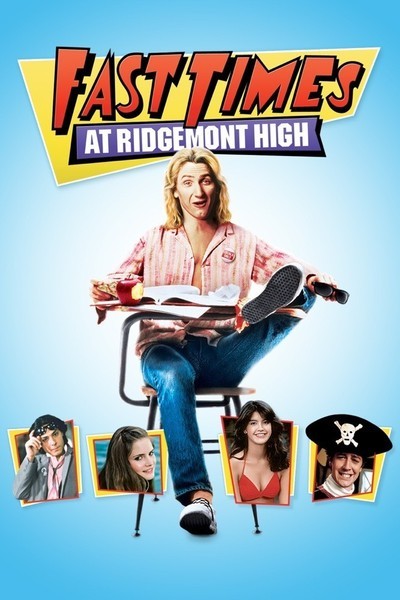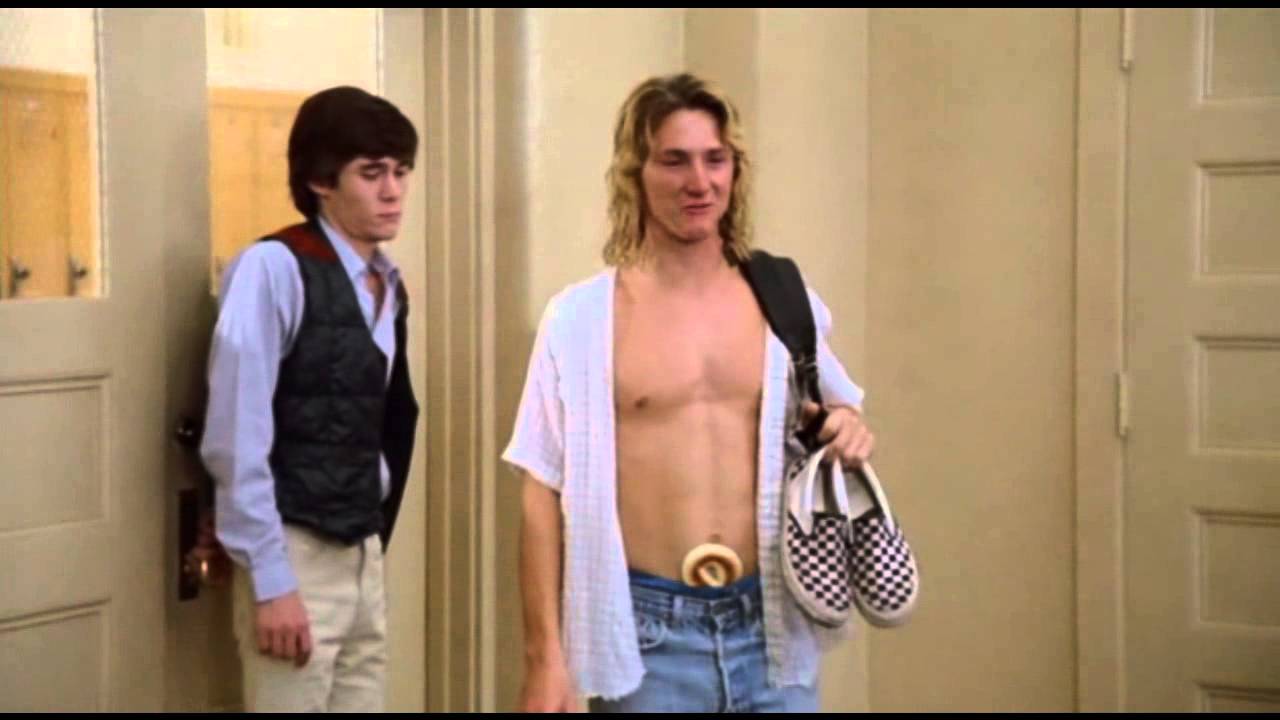The Film Experience is proud to welcome back Anne Marie and her series "Women's Pictures" after a month long hiatus. September's episodes (each Thursday) will focus on Amy Heckerling. If you missed previous subjects, Anne Marie's series on female directors already covered Ava DuVernay, Ida Lupino, Jane Campion, Sofia Coppola, Agnes Varda, Kathryn Bigelow - Editor
 The days are getting shorter, the weather is turning colder, and just as you perfected your righteous tan, the bell rings and it's back to school you go! Anne Marie here, after my own (all too brief) summer vacation, ready to celebrate Back To School month with the female filmmaker who has exercised as much influence on the Teen Film genre as John Hughes: Amy Heckerling! While Heckerling's ouevre has run the gamut from slapstick to parody to fantasy, she's best known for two genre-defining high school films made a little over a decade apart: Clueless (1995), which we will cover later, and Fast Times At Ridgemont High (1982), the topic of today's lesson.
The days are getting shorter, the weather is turning colder, and just as you perfected your righteous tan, the bell rings and it's back to school you go! Anne Marie here, after my own (all too brief) summer vacation, ready to celebrate Back To School month with the female filmmaker who has exercised as much influence on the Teen Film genre as John Hughes: Amy Heckerling! While Heckerling's ouevre has run the gamut from slapstick to parody to fantasy, she's best known for two genre-defining high school films made a little over a decade apart: Clueless (1995), which we will cover later, and Fast Times At Ridgemont High (1982), the topic of today's lesson.
When Heckerling set about making Fast Times at Ridgemont High in the early 1980s, she wasn't looking to define a genre. There wasn't yet a teen film genre to define. John Hughes was still two years away from making Sixteen Candles, and American Grafitti, now pointed to as the first teen film, was already almost decade old with few major successors. What drew Amy Heckerling to Cameron Crowe's script about high school students was the realness of its characters. Fast Times At Ridgemont High was no nostalgia-tinged look backward at youth; it was an expose written by Cameron Crowe, who'd gone undercover at a high school for Rolling Stone to observe contemporary teens. Fast Times at Ridgemont High was something new: high school from the teenager's perspective. [More...]
 Sometimes that perspective is just "really stoned"
Sometimes that perspective is just "really stoned"
Based on Crowe's novel about his experience, Fast Times at Ridgemont High would end up structured very similarly to American Grafitti: taking place over a year (instead of a night), Fast Times At Ridgemont High follows several high school students through independent but intersecting storylines, as they learn about sex, authority, love, friendship, popularity and how not to lose your job. The cast of Heckerling's film was just on the cusp of stardom: Jennifer Jason Leigh, Judge Reinhold, Forrest Whitaker, Sean Penn, Pheobe Cates, Anthony Edwards, Eric Stoltz, Sean Penn, and a mute Nicholas Cage all (with the exception of Cage) play sizeable roles. And though Fast Times was not nearly as comic as later teen films would become, Heckerling nonetheless laid some guidelines for the nascent genre.
Though there were other proto-teen films at the time, Amy Heckerling came closest to immediately codifying genre tropes in both deep and shallow ways. Contemporary pop music - which Heckerling insisted on - is used throughout the film. (It's actually a great early 80s soundtrack: Oingo Boingo, Jimmy Buffett, and Stevie Nicks contributed.) Characters are easily broken into student archetypes - surfer, popular girl, nerd, etc - and their social status at the beginning is established in an opening scene at the mall. (This would later evolve into the requisite expository lunchroom scene parodied in Mean Girls.)
Thematically-speaking, big issues, like drugs and employment, and small issues, like popularity and masturbation, are handled with equal tension, because for teenagers, popularity and masturbation are as important as drugs and unemployment. There's also a lot of female nudity in Fast Times at Ridgemont High, along with some surprisingly frank discussions of sex and masturbation This is because, despite Sean Penn's broad surfer-bro accent, Fast Times at Ridgemont High is a film that takes teens seriously. Even though the more graphic elements of the movie would fade, this would be the most important tenet of the teen film: take the teenage characters seriously.
 At least as seriously as they take themselves
At least as seriously as they take themselves
This rule actually describes Amy Heckerling's writing and directing style perfectly. After the success of Fast Times at Ridgemont High, Heckerling launched a career which, if not as obviously weighty as the other female filmmakers we've discussed in this series, was nevertheless devoted to taking comedy seriously. She became a pro at making wide-appeal comedy. Just seven years (plus two hits and one flop) after her directorial debut, Amy Heckerling would try her hand at screenwriting. Her next subjects would be even younger than high school students.

This month on Women's Pictures...
 9/10 Look Who’s Talking (1989) (Amazon Instant Video) - This John Travolta/Kirstie Allie gimmick movie was a huge smash, and Heckerling's biggest hit until Clueless.
9/10 Look Who’s Talking (1989) (Amazon Instant Video) - This John Travolta/Kirstie Allie gimmick movie was a huge smash, and Heckerling's biggest hit until Clueless.
9/17 Clueless (1995) (Amazon Instant Video) (Netflix) - Like we'd skip over this classic on its 20th anniversary? As if!
9/24 Vamps (2012) (Amazon Instant Video) - Amy Heckerling's literal suckfest, which weirdly gives us hope for the future.